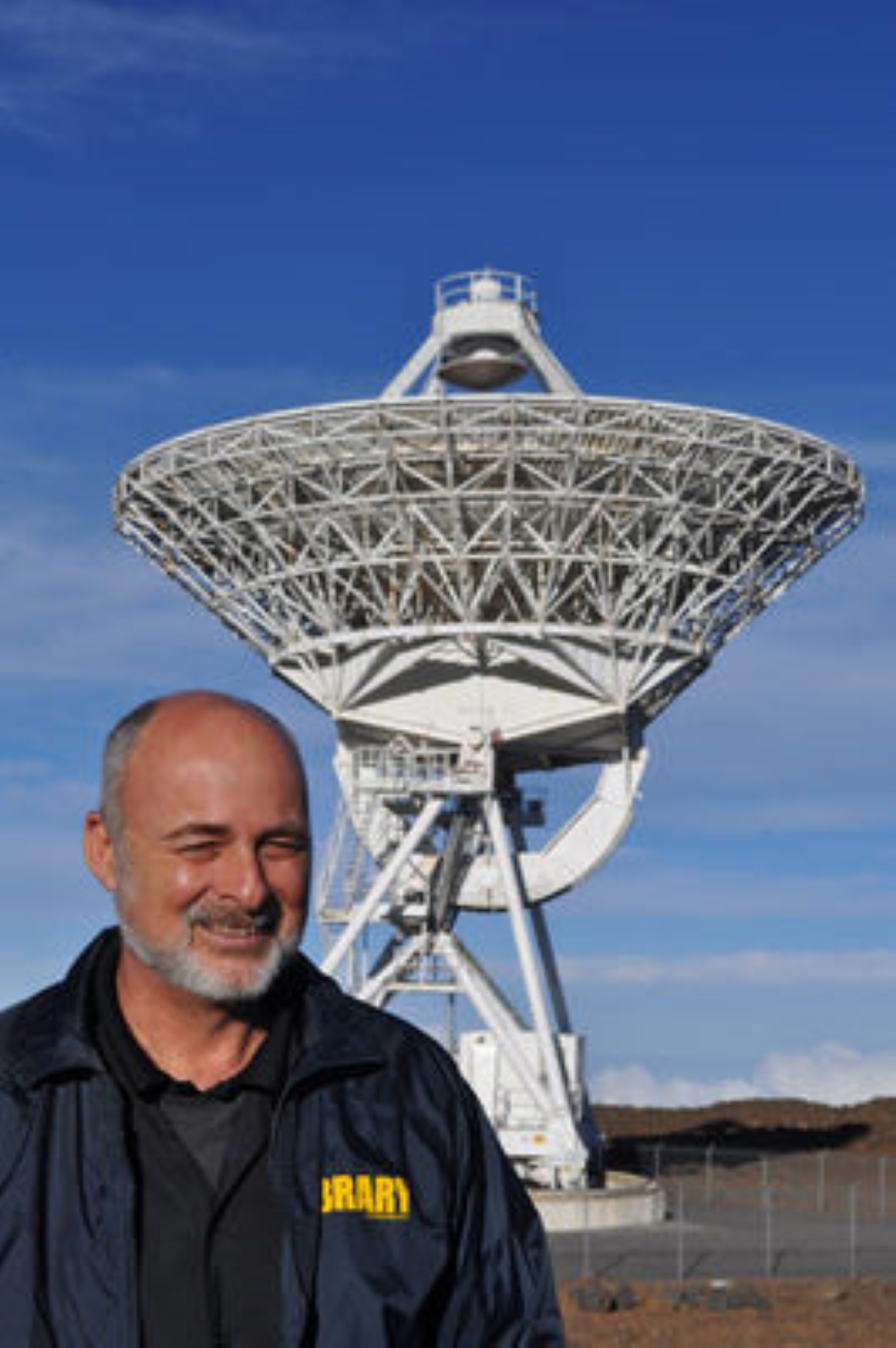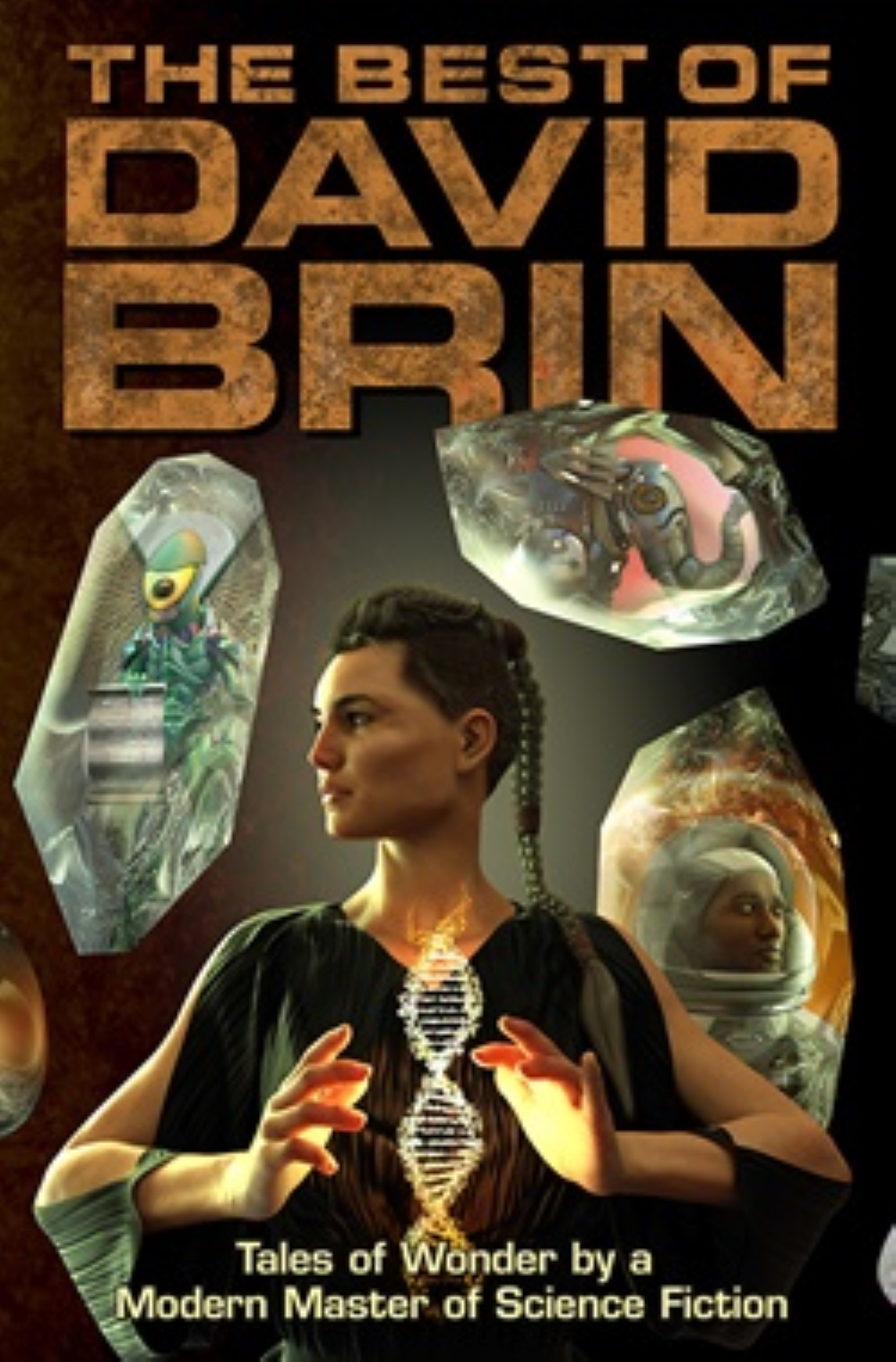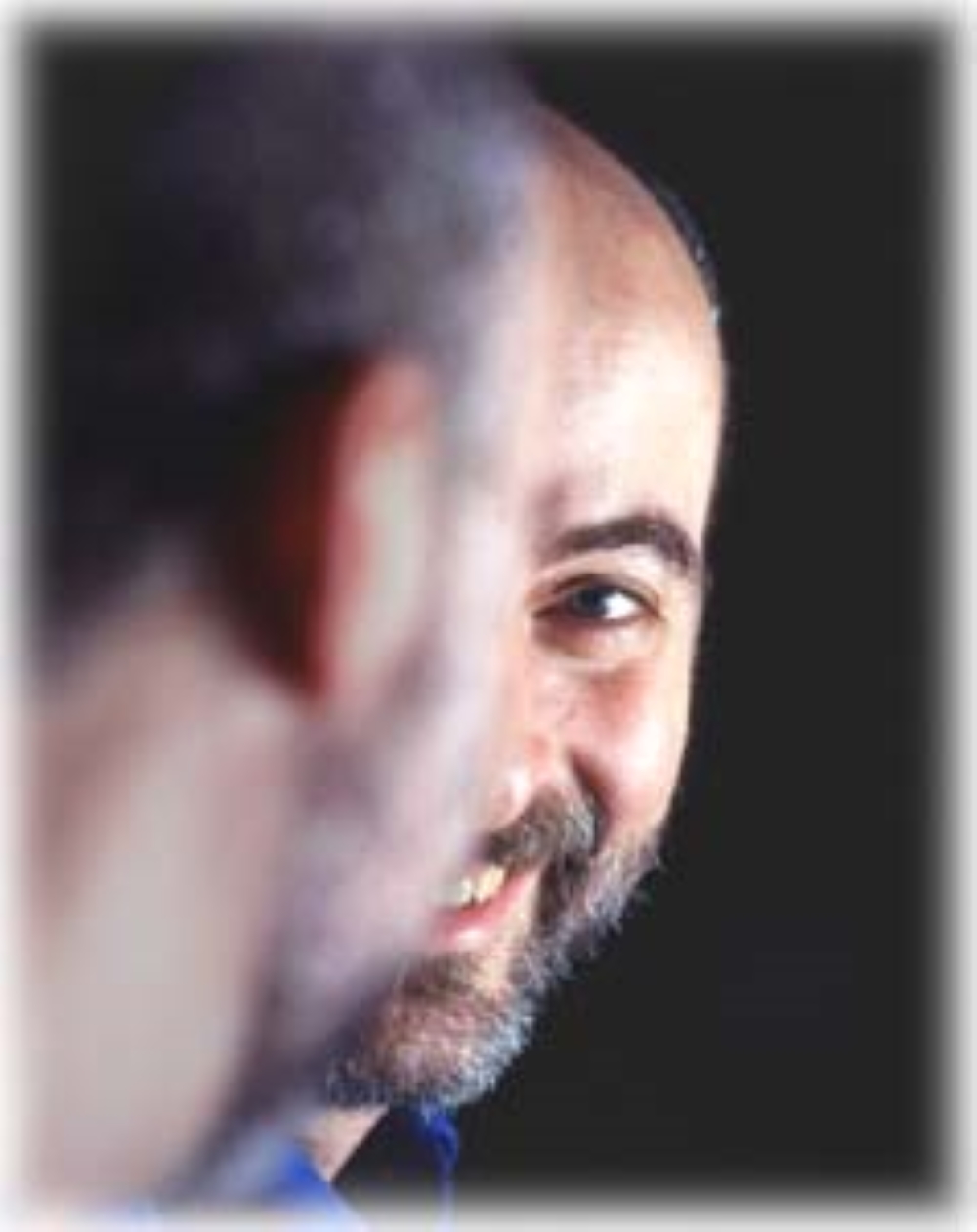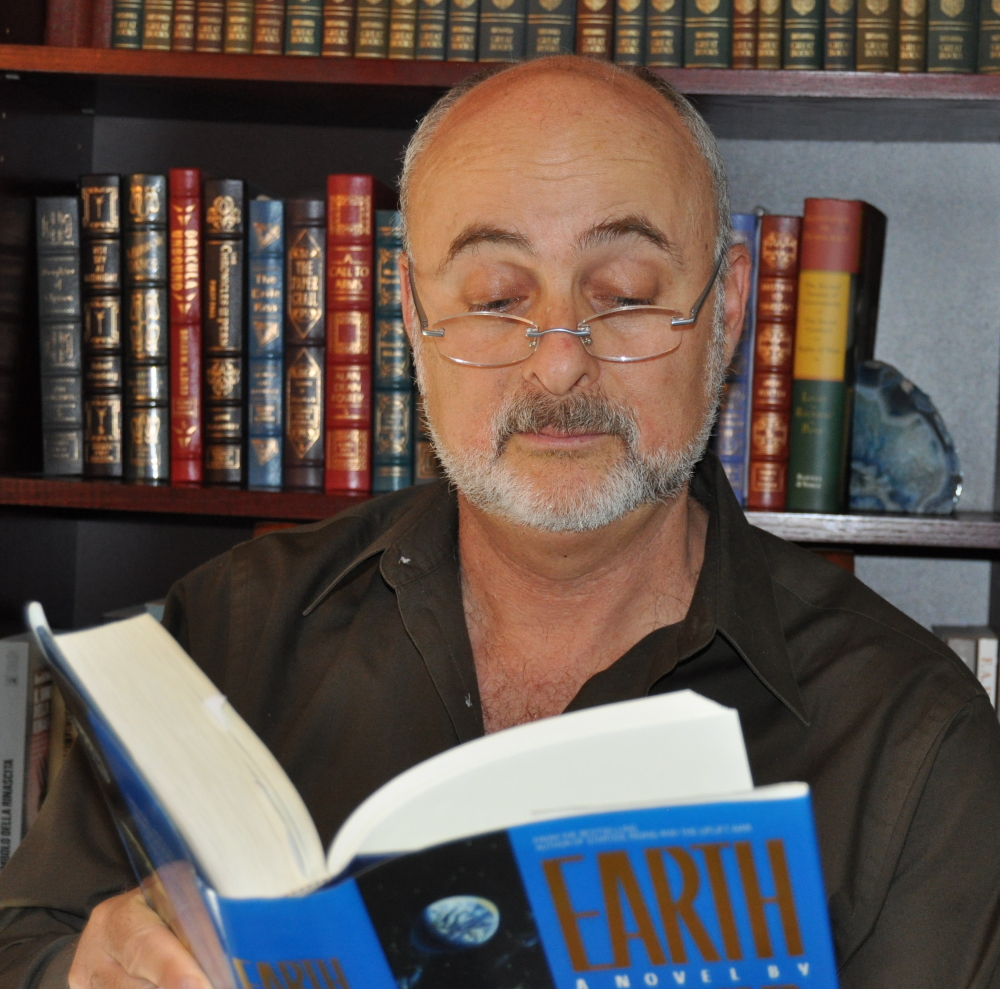David Brin
scientist / author / tech speaker / consultant
US
„One of four World’s Best Futurists“ (Urban Developer Magazine) and "#1 influencer" in Onalytica’s Top 100 report of Artificial Intelligence influencers, brands. David Brin is known to the wide public as one of the most important American science fiction authors of the present day. Since 1980 he has thrilled readers in 25+ languages by his best-selling novels including „The Postman“ (filmed in 1997 starring Kevin Costner), explorations of our near-future and short stories that pursue vividly speculative ideas plus nonfiction books. Having earned a Master of Science in electrical engineering and a Doctor of Philosophy degree in astronomy, this multiple award-winning distinguished storyteller really knows what he’s talking about.
David Brin
scientist / author / tech speaker / consultant
US

„Brin tackles a plethora of cutting-edge concepts... with the skill of a visionary futurologist ... [conveying] the depth and breadth of his startling future“ (Guardian). „The seriously clever Brin has spent a lot of time thinking about big questions - and has devised a highly original yet plausible version of alien contact“ (BBC Sky at Night). „Cleverly argued and uncomfortably plausible (SUNDAY TELEGRAPH). Three exemplary positive reviews out of many – back then about David Brin’s book „Existence“ (2012) – that praise the high quality of this writer’s work.
Glen David Brin was born October 6, 1950 in Glendale, California. „He graduated from the California Institute of Technology with a Bachelor of Sciene in astronomy, in 1973. At the University of California (San Diego) he earned a Master of Science in electrical enginieering (optics) in 1978 and a Doctor over Philosophy degree in astronomy in 1981“ (Wikipedia). Mr. Brin serves on the advisory board of NASA's Innovative and Advanced Concepts group and frequently does consulting for corporations and government agencies interested in the future - ranging from Defense Department bureaus and the CIA to Procter & Gamble, SAP, Google and other majors. He has also been a participant in discussions at the Philanthropy Roundtable and other groups seeking innovative problem solving approaches.“
„DB“, who writes widely on topics from national defense and homeland security to astronomy and space exploration, Search for Extraterrestrial Intelligence (SETI) and nanotechnology, future/prediction, creativity, and philanthropy, has won the Hugo, Locus, Campbell and Nebula Awards for his books. His nonfiction publication ‚The Transparent Society: Will Technology Force Us to Choose Between Privacy and Freedom?‘ was awarded the American Library Association's Freedom of Speech Award for exploring 21st Century concerns about security, secrecy, accountability and privacy.
David Brin lives in San Diego (California) with his wife and children.
Interview July 2022
Solving the riddles of our existence: what’s to come?
INTUITION/IMAGINATION
How does intuition present itself to you – in form of a suspicious impression, a spontaneous visualisation or whatever - maybe in dreams?
Intuition is a spectrum at one end, it consists of logically considering what can either be interpolated between two known facts… or else extrapolated plausibly into the future. In these cases, intuition is like Einstein’s ‘Gedankenexperiment” or thought experiment. At the other end are dreams or daydreams which come wholly from the unconscious.
Will any ideas be written down immediately and archived?
I have more notes than I can ever use.
INSPIRATION
What inspires you and how do you stimulate this special form of imaginativeness?
Science fiction is more inspired by history than by science. History is the great story, of a race of clever apes who stepped out of caves and swamps to try new things, to make terrible mistakes, and then either learn from those mistakes or else (far more often) refuse to learn from them.
That epic struggle grew intense 6000 years ago, then even more intense in recent generations. We are all part of it and there are no greater stories. Science fiction takes that story and extends it into possible futures. Hence it should be called speculative history.
How do you separate the good from the bad and which ideas are worthwhile to be explored further or whether one idea has the potential of being outstanding really?
Some ideas can be tested by science and experiment. Others can be compared with the delusions of the past. One danger sign is “Perhaps I WANT this to be true so much that it affects my judgement.” At other times, when I am telling a story or novel, I let the characters tell me what works!
Do you revisit old ideas or check what colleagues/competitors are up to at times?
Yes.
CREATIVITY
Which time/place/environment suits your creative work process the best (tranquillity or pressure) and which path do you take from theory/idea to creation?
Peace and quiet can help. But creativity can also foam out of an argument!
What is better in the realization process: speed and force creativity i.e. grasp the magic of the moment, or a slow, ripening process for implementation/elaboration?
Both work at their own times.
If problems occur during creativity or one’s stuck even, how can these be solved?
Move over to a different creative project. Find the one that inspired you to work.
How important are self-doubt and criticism (by others) during such a process i.e. is it better to be creative on your own, only trust your own instincts, or in a team?
There is only one way to improve rapidly and learn from your mistakes and penetrate your own delusions. Criticism is the only known antidote to error. We all HATE receiving criticism! (Though we love to give it.) And yes, many critics can be hurtful or unhelpful. But if you develop a thick skin and an APPETITE for criticism, you will find your flaws and mistakes more quickly.
Should a creative always remain true to him-/herself including taking risks & going against the flow or must one, for reasons of (commercial) survival, make concessions to the demands of the market, the wishes of clients and the audience’s expectations?
Contempt for the reader is a common disease among writers. You can tell a good story AND do high art, at the same time.
How is innovation still possible if one has established a distinctive style and, just in case, is it good to be ahead of one’s time even one hazards not being understood?
See my answer above this one.
When does the time come to end the creative process, to be content and set the final result free - or is it work-in-progress with an endless possibility of improvement?
Every artist must decide personally where to set this boundary, and differently for each work of art.
In case of failure or - worse - a creativity crisis how do you get out of such a hole?
Seek criticism from helpful people, whose eyes may see the problem that you missed. But in the end, you must move on and try again,
SUCCESS
Should/can one resist the temptation to recycle a ‘formula’ one’s successful with?
I could have been rich by repeating the same formula over and over again. My readers are the kind who want something new. And so do I.
Is it desirable to create the ultimate/timeless work, but doesn’t “top of the ladder” bring up the question of “what’s next?” i.e. isn’t such a personal peak “the end”?
I do many different things, to keep from being bored.
MY FAVORITE WORK:
While most of my literary awards were for 'classic' Uplift Universe novels and stories set in the far future, across five galaxies, my most famous work - The Postman - was made into a movie and the novel inspires freedom movements in several countries. EARTh and EXISTENCE are two novels that are complex and filled with speculations about our near future. Many scenes from EARTH are now cited on predictions scoring sites. But my favorite works are short stories and novellas to be found in Best of David Brin stories... my best stuff!


